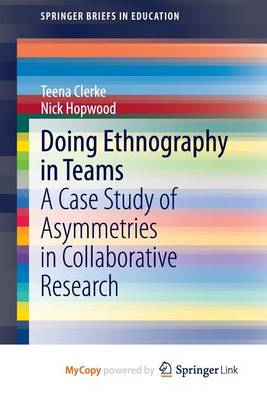SpringerBriefs in Education
1 total work
This uniquely in-depth book offers a blow-by-blow account of the sometimes problematic dynamics of conducting collaborative fieldwork in ethnography. Tracing the interplay between co-researchers at various points of contact in both professional and personal relations, the analysis draws out the asymmetries which can develop among team members nominally working towards the same ends. It details the often complex dialogues that evolve in an attempt to navigate conflicting interests, such as team members' resistances to particular methodological 'recipes' or research protocols. The authors show that such debates can create an open forum to negotiate new practices.
A key element of this publication is that it goes beyond an analysis of more traditional power relations in research teams comprising members at different academic pay grades. As well as drawing attention to gender-related dynamics in research collaborations, the authors use themselves as an exemplar to demonstrate how differences in age, experience, knowledge, professional skills and background can be exploited to generate positive outcomes constituting much more than the apparent sum of their parts. In doing so, the authors reveal the delightful, surprising and yet challenging aspects of research collaboration that are often absent from the qualitative literature.
